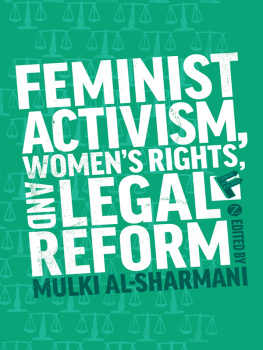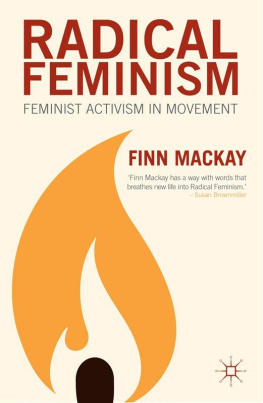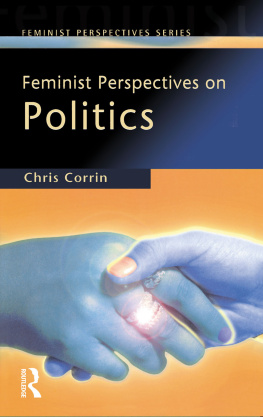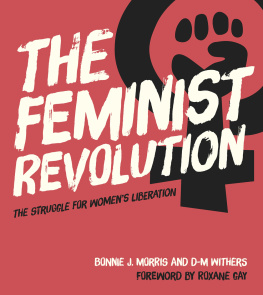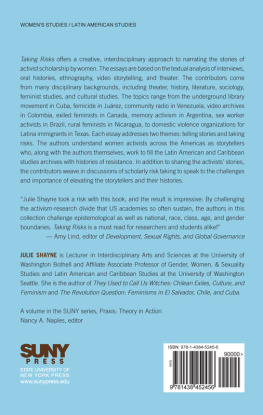Groundswell
Groundswell: Grassroots Feminist Activism in Postwar America offers an essential perspective on the post-1960 movement for womens equality and liberation. Tracing the histories of feminist activism through the National Organization of Women (NOW) chapters in three different locations: Memphis, Tennessee; Columbus, Ohio; and San Francisco, California, Gilmore explores how feminist identity, strategies, and goals were shaped by geographic location.
Departing from the usual conversation about the national icons and events of second-wave feminism, this book concentrates on local histories and asks the questions that must be answered on the micro level: Who joined? Who did not? What did they do? Why did they do it? Together with its analysis of feminist political history, these individual case studies from the Midwest, South, and West Coast shed light on the national womens movement in which they played a part.
In its coverage of womens activism outside the traditional East Coast centers of New York and Boston, Groundswell provides us a more diverse history of feminism, showing how social and political change was made from the ground up.
Stephanie Gilmore is Assistant Professor of Womens and Gender Studies at Dickinson College.
First published 2013
by Routledge
711 Third Avenue, New York, NY 10017
Simultaneously published in the UK
by Routledge
2 Park Square, Milton Park, Abingdon, Oxon OX14 4RN
Routledge is an imprint of the Taylor & Francis Group, an informa business
2013 Taylor & Francis
The right of Stephanie Gilmore to be identified as author of this work has been
asserted by her in accordance with sections 77 and 78 of the Copyright,
Designs and Patents Act 1988.
All rights reserved. No part of this book may be reprinted or reproduced or
utilized in any form or by any electronic, mechanical, or other means, now
known or hereafter invented, including photocopying and recording, or in any
information storage or retrieval system, without permission in writing from the
publishers.
Trademark notice: Product or corporate names may be trademarks or registered trademarks, and are used only for identification and explanation without intent to infringe.
Library of Congress Cataloging-in-Publication Data
Gilmore, Stephanie.
Groundswell : grassroots feminist activism in postwar America / by Stephanie
Gilmore.
p. cm.
Includes bibliographical references and index.
1. Feminism- -United States- -History. 2. Feminists- -United States- -History.
3. United States- -Social conditions- -1945- I. Title.
HQ1426.G454 2012
305.420973- -dc23
ISBN: 978-0-415-80144-7 (hbk)
ISBN: 978-0-415-80145-4 (pbk)
ISBN: 978-0-203-87613-8 (ebk)
Typeset in Bembo
by Taylor & Francis Books
Acknowledgments
Let me begin with a bit of a confession: whenever I put a new book in my hands, I turn immediately to the acknowledgments. (If this is your habit too, welcome.) I do so because it is such a lovely reminder that, no matter whose name appears on the cover, the work is accomplished through the energy, time, and love of many. Many wonderful people contributed to the making and actual publication of Groundswell. Anything good that comes of it is the result of their generosity and support; of course, any faults that remain are mine alone.
My first and deepest thanks go to the many women who didand dothe work of grassroots feminism, some of whose voices are chronicled in here. Their activism reminds me that a movement is made up not just of leaders but of everyday people, unsung heroes who devote time, passion, money, energy, and love to themselves, their neighbors, and the larger cause of feminist revolution. For their time in the movement, and for sharing that with me, I am deeply humbled and grateful.
This book began as my dissertation, which I completed at Ohio State University. A most lovely and rigorous committee of Leila Rupp, Susan Hartmann, and Ken Goings kept me motivated with their own exacting standards. They comforted me when life threatened to dismiss any plans I had made for myself. They celebrated when I achieved any accomplishment. I remain impressed by the rate with which they conduct and publish research, especially when I know how much time and energy they have given to their students (me among them) over the years. Like Leila, Susan, and Ken, other faculty mentors at Ohio State, including Birgitte Sland, Judy Wu, Donna Guy, and Ken Andrien, became friends. My graduate-school peers (many of whom were also fellow Journal Girls) not only kept me on my toes but also kept me laughing at clever turns of phrase, curious observations, and the funnier things in life. Renee Lansley, Heather Miller, Basia Nowak, Charlotte Weber, Anne Collinson, and Susan Freeman were especially important colleagues and friends, and I am grateful that we all still remain friends. Annie especially endured more than her fair share of my grad-school angst, but she did so with love and joy. She can have margaritas at my house anytime!
Since graduate school, I have had the good fortune of working at two fine institutions. Trinity College offered me an intellectual and academic home for two years, and I will be indebted to colleagues there, especially Steve Valocchi, Lou Masur, and Joan Hedrick. My current institution, Dickinson College, is unsurpassed in its academic nourishment, convivial atmosphere, and supportive colleagues, and I remain grateful for all of the intellectual reinforcement I have received there. In the four years I have been there (two of which I served as department chair), my home department of Womens and Gender Studies has quadrupled in number of majors, a testament to the importance of feminism and feminist faculty. I am deeply appreciative of my WGST colleagues Amy Farrell, Susannah Bartlow, Megan Yost, and Megan Glick, as well as a number of other colleagues who have supported and encouraged me along the way: Amy Steinbugler, Helene Lee, Laura Grappo, Vanessa Tyson, Wendy Moffat, Susan Rose, Jerry Philogene, Joyce Bylander, Sharon OBrien, Ann Hill, Susan Feldman, Dan Schubert, Karen Weinstein, Sarah Brylinsky, Simona Perry, and Barbara Shaw. They make my time at Dickinson a true pleasure, even asand especially becausethey raise the bar for scholarly and intellectual pursuit. Neil Weissman deserves special acknowledgment: I have never met a dean who was more invested in the faculty as a whole, and in this particular faculty member. He and my colleagues have always considered yes before insisting no, a rarity these days.
My students have always been a true source of inspiration, and as I walk into my classrooms every semester, I am reminded that we need feminist histories so that they can build feminist futures. For every student who came to my classes, and especially those who came back for more and even decided to major in WGST, you are wonderful teachers. I appreciate you and I look forward to your own activist endeavors.
Many of my colleagues are also my friends, and their friendship is a real treasure. Dan, Vanessa, Megan, Laura, Amy, Helene, Sarah, Susannah, Simona, and Barbara made time for good food, much coffee, strong drinks, and hearty laughter, and I hope to return tenfold the friendship and generosity they have given to me. Susannah, Simona, and Barbara have been particularly good to me, offering not only friendship but also a sense of home for me in Carlisle.


